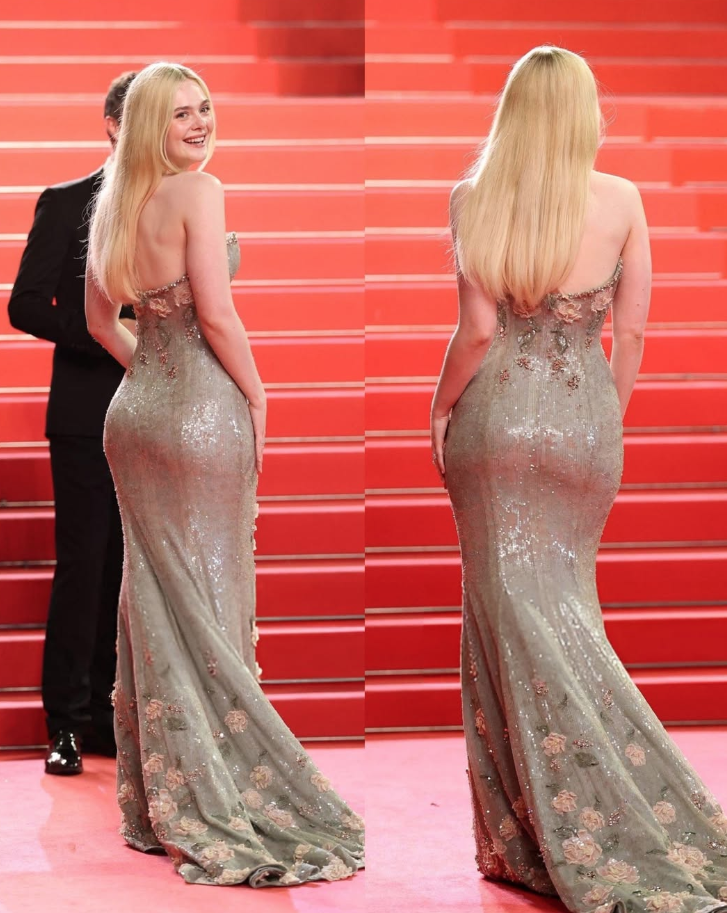Ah, Cannes… We really don’t have any plans to write about it, but since we saw pictures of Elle Fanning on the red carpet and since we’ve featured listicles about movies with super steamy (and disturbing) sex scenes (here, here, and here), we figured… Why the hell not?
Let’s talk about sex in movies—specifically, the unsimulated kind. Not too long ago, it felt like Cannes had a reputation for pushing boundaries with raw, real sex scenes on screen. But lately? That bold tradition seems to be fading. Films featuring truly authentic, unsimulated intimacy have become noticeably fewer and farther between at the festival.
So let’s go back and check out the films with sex scenes that we think you will love to check out… In no particular order of steaminess, ladies and gentlemen… Or maybe no, how about we do a timeline instead? Now, some of these we’ve featured already, but heck, we just felt the need to include them anyway.
Caligula: The Ultimate Cut (2023)
No, the infamously chaotic Caligula didn’t originally premiere at Cannes—but in 2023, the festival did host the debut of The Ultimate Cut, a newly re-edited and fully restored 4K version of the film.
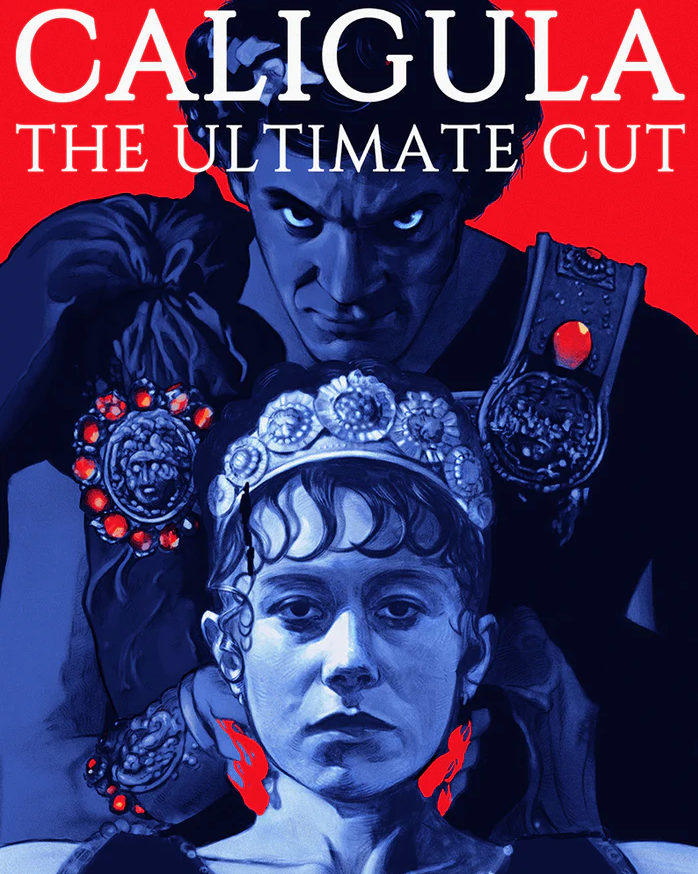
Credited to three different directors (yes, three!), Caligula is infamous not just for its wild behind-the-scenes drama, but for being a full-blown production nightmare. The film, starring Malcolm McDowell as the scandalous Roman emperor, is also known—or maybe notorious—for the explicit sex scenes added after filming by producer Bob Guccione, who also happened to be the founder of Penthouse magazine. Because, of course, he was.
Mektoub, My Love: Intermezzo (2019)
Director Abdellatif Kechiche’s nearly four-hour epic Mektoub, My Love: Intermezzo stirred up serious controversy—and a whole lot of walkouts—when it premiered at the Cannes Film Festival. The film’s lengthy and extremely graphic sexual content, including an extended unsimulated oral sex scene, left many in the audience stunned and not in a good way.
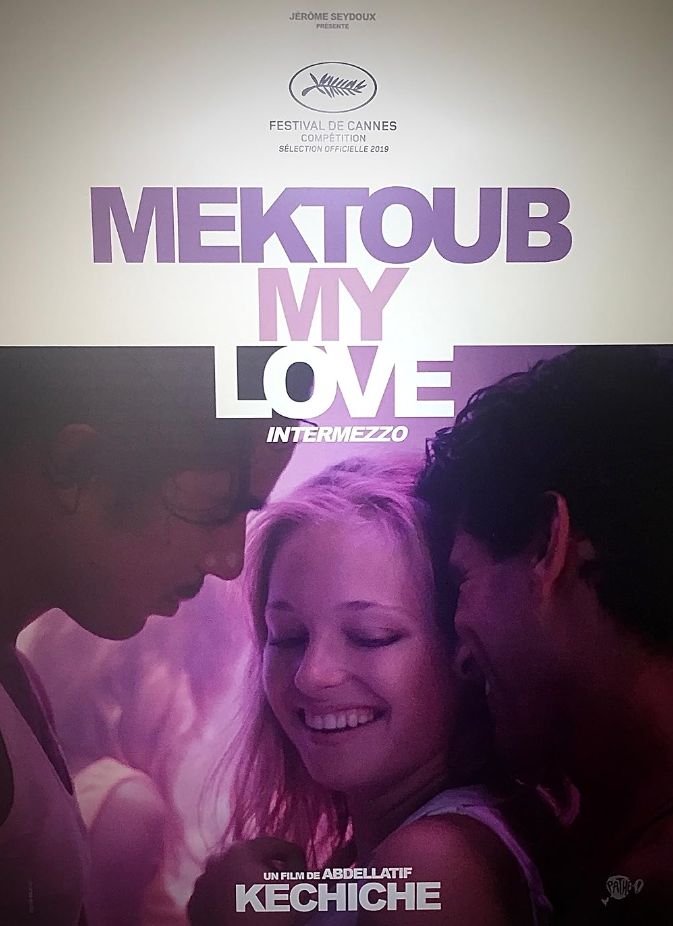
The film has never been shown in the U.S., thanks to ongoing legal disputes surrounding its production. Adding fuel to the fire, actress Ophélie Bau revealed in 2020 that director Kechiche refused to let her see the 13-minute sex scene she starred in before the premiere. On top of that, there were disturbing reports that he used questionable tactics—like allegedly supplying the cast with alcohol—to get the performances he wanted. Let’s just say, Intermezzo made waves for all the wrong reasons.
Liberté (2019)
If an orgy happens in the woods and no one’s around to hear it… did it still make a sound? According to Albert Serra’s Liberté, the answer is a resounding yes—moans, groans, and plenty of unsimulated sex included.
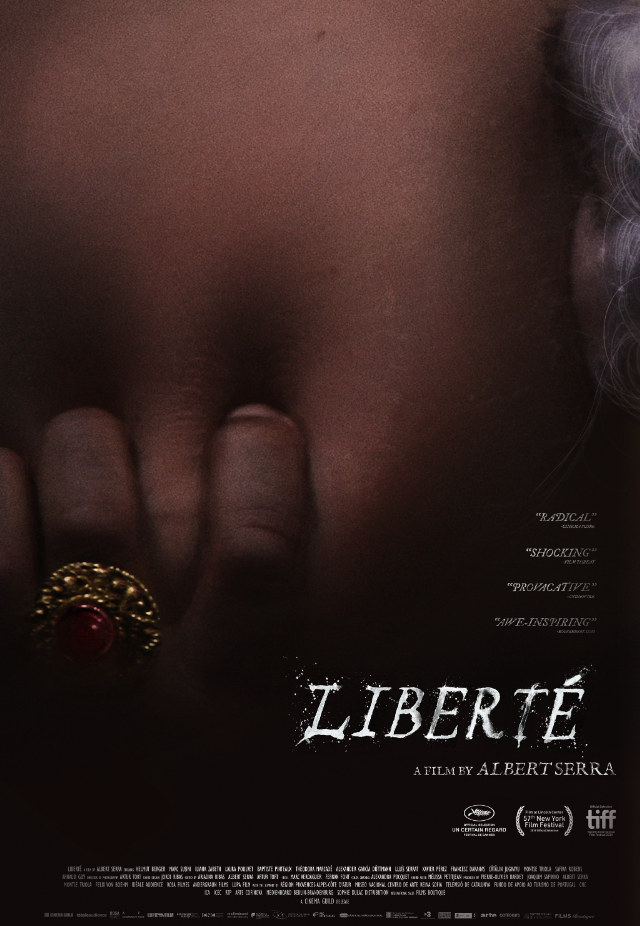
Set in the 18th century, this bold and bizarre period piece follows a group of libertine European aristocrats—Madames, Dukes, Duchesses, the whole decadent bunch—as they indulge in a night of hedonistic chaos deep in the forest after being kicked out of Louis XVI’s court. Think powdered wigs meet S&M.
Starring Helmut Berger, Marc Susini, Iliana Zabeth, and Laura Poulvet, Liberté doesn’t hold back. IndieWire’s Eric Kohn described it as “not exactly porn,” though with a five-minute scene involving anal “eating,” it certainly pushes the boundaries. Beneath all the scandal, there’s a sharp satire of elite repression—and a Cannes 2019 premiere in the Un Certain Regard section to boot.
Love (2015)
Argentine director Gaspar Noé first dipped his toes into unsimulated sex with his trippy, Tokyo-set 2009 drama Enter the Void. But in 2015’s Love, he dove in headfirst.
Set in Paris and told through flashbacks, Love follows the turbulent romance between an American film student named Murphy and his French ex, Electra. And let’s just say—this film doesn’t shy away from intimacy. It includes just about every kind of sex scene you can think of: oral, mutual pleasure, threesomes—you name it.

Premiering at the 2015 Cannes Film Festival, Love is perhaps most (in)famous for one particular moment that took 3D cinema to a whole new level… yes, that “money shot” required actual 3D glasses. Bold choice, Gaspar. Bold choice.
Antichrist (2009)
Lars von Trier’s Antichrist doesn’t so much start as it grabs you by the collar and throws you into chaos. The film opens with an unsimulated sex scene—cut with the tragic death of a child. Yep, von Trier doesn’t ease you in.

Wracked with guilt, the grieving couple—simply named He (Willem Dafoe) and She (Charlotte Gainsbourg)—escape to a secluded cabin in the woods, ironically named Eden. But paradise it is not. The sex grows more intense, the violence more disturbing, and things spiral into full-blown psychological (and physical) horror—including graphic genital mutilation that had even seasoned filmgoers squirming.
Antichrist premiered in Competition at the 2009 Cannes Film Festival, where it caused plenty of walkouts, gasps, and fierce debate. Just another day in von Trier’s cinematic playground.
Shortbus (2006)
Shortbus dives into the lives of a diverse group of New Yorkers—straight, gay, male, female—as they try to untangle the messy threads between love, sex, and everything in between. Their stories all intersect at a wild, anything-goes underground salon called (you guessed it) Shortbus.
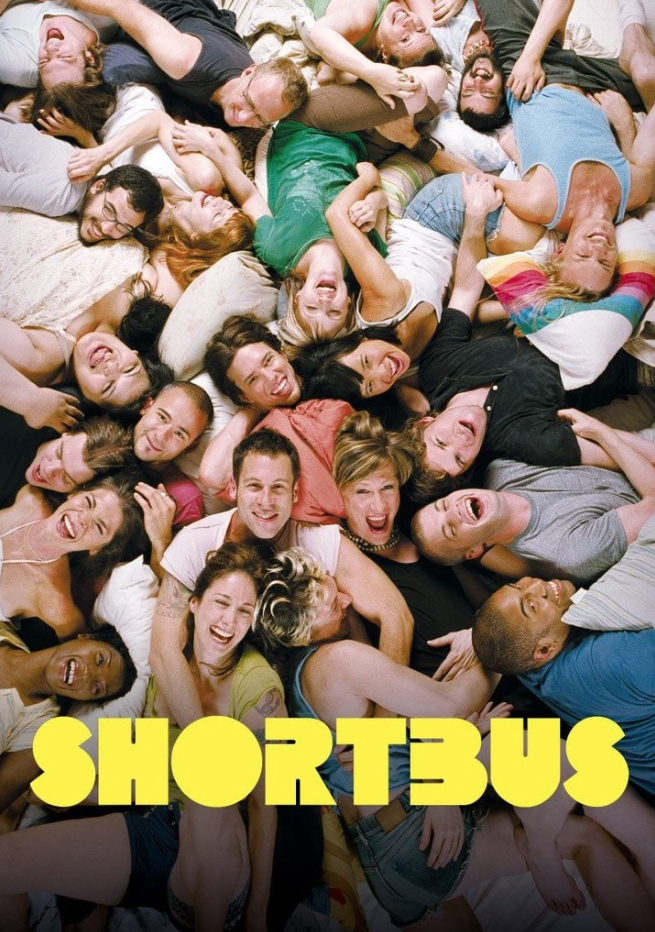
The film doesn’t shy away from intimacy—in fact, it leans all the way in, with long, unsimulated sex scenes that sparked plenty of debate. Some labeled it pornographic, but director John Cameron Mitchell aimed for something deeper: a raw, unfiltered look at connection and vulnerability.
Premiering at the 2006 Cannes Film Festival, Shortbus made waves. Variety even called it “unquestionably the most sexually graphic American narrative feature ever made outside the realm of the porn industry.” Consider that your content warning and invitation.
Destricted (2006)
Curated under the wild eye of Gaspar Noé, Destricted is a two-hour mashup of seven short films that boldly explore the blurry line between art and porn. Each piece, created by a different artist or indie filmmaker, dives headfirst into raw sexuality, with absolutely zero interest in subtlety.
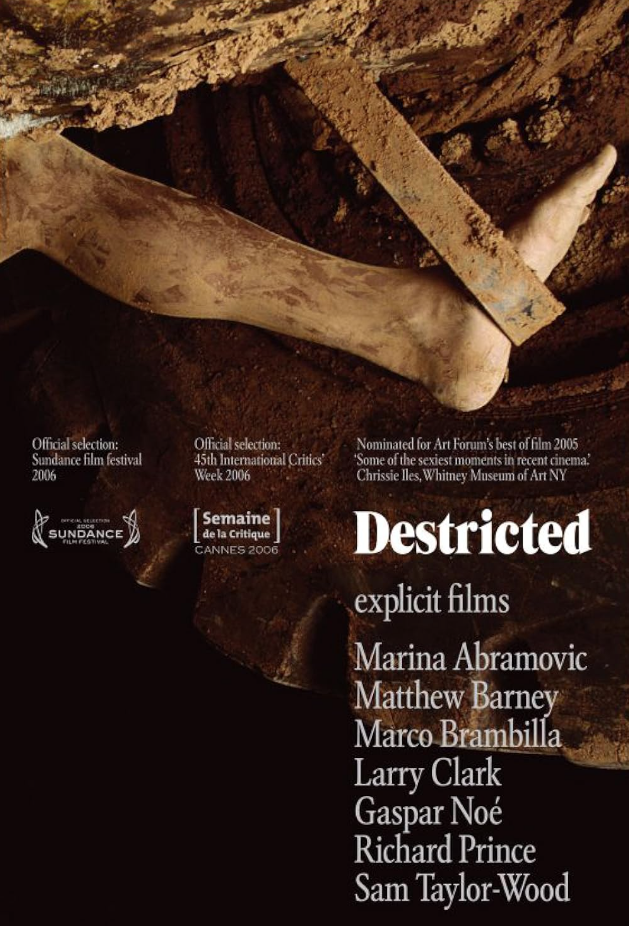
Among the more eyebrow-raising moments? An eight-minute outdoor solo session from a man who clearly wasn’t shy about performance art. The film doesn’t hold back, featuring real, explicit sex acts throughout.
Released uncut on DVD, it came with a very clear warning from the British Board of Film Classification: “contains strong, real sex.” The creative lineup behind it includes heavy hitters like Marina Abramović, Matthew Barney, Larry Clark, Richard Prince, Marco Brambilla, Sam Taylor-Wood, and Noé himself. Destricted stirred plenty of buzz when it screened at the 2006 Cannes Film Festival—because, of course, it did.
9 Songs (2004)
Michael Winterbottom’s 9 Songs is a raw, intimate look at a passionate relationship—from its steamy start to its slow unraveling. The film is set to a soundtrack of nine indie rock performances, which not only inspired the title but also mirror the highs and lows of the couple’s connection.
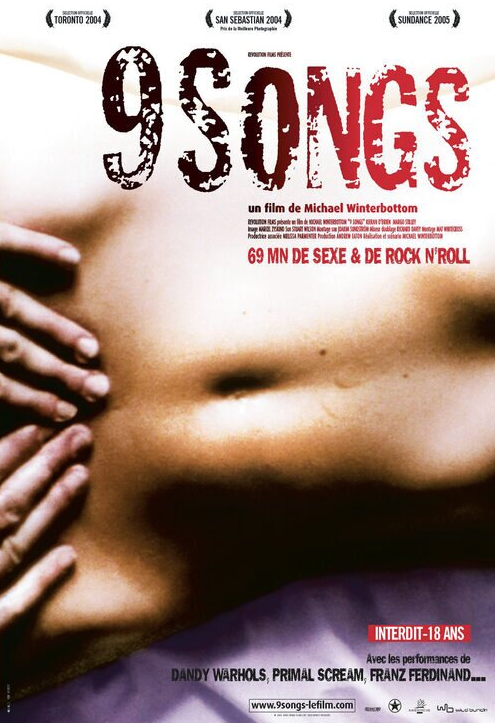
What really got people talking, though, were the unsimulated sex scenes. We’re talking everything: close-up fellatio, cunnilingus, and even ejaculation. Naturally, this sparked plenty of controversy when it hit the festival circuit. Still, 9 Songs made its bold debut at Cannes in 2004, refusing to shy away from showing love—and lust—in its most unfiltered form.
The Brown Bunny (2003)
Vincent Gallo’s The Brown Bunny is a moody road movie about a deeply troubled man on a lonely ride to Los Angeles, haunted by memories of his lost love, Daisy (played by Chloë Sevigny). But what really put the film on the map—and not in a subtle way—was its now-infamous unsimulated oral sex scene between Gallo and Sevigny, which earned the movie an NC-17 rating and endless headlines.
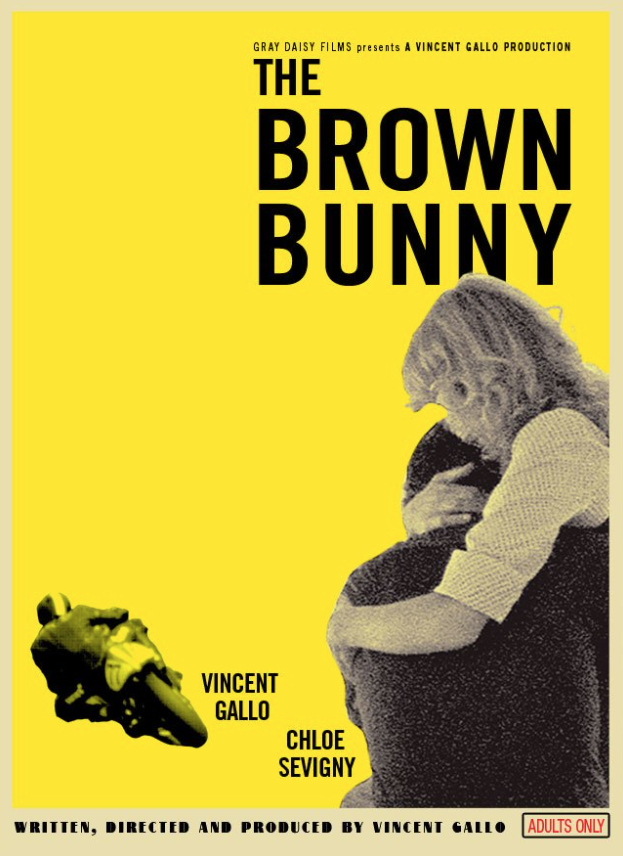
Premiering at the 2003 Cannes Film Festival, the film didn’t just stir up controversy—it kicked off a legendary feud between Gallo and film critic Roger Ebert, who called it the worst film in Cannes history. Gallo fired back with a curse or two of his own. Love it or hate it, The Brown Bunny made sure no one left the theater without an opinion.
The Center of the World (2001)
Directed by Wayne Wang, The Center of the World stars Peter Sarsgaard as Richard Longman, a wealthy tech guy who offers $10,000 to a stripper named Florence (played by Molly Parker) to spend three no-strings-attached days with him in Las Vegas. What could possibly go wrong?

Screened out of competition at the 2001 Cannes Film Festival, the film definitely pushed boundaries, especially in one eyebrow-raising scene at a strip club. Let’s just say it involves Florence, a lollipop, and an unforgettable transfer of said lollipop into Richard’s mouth. Tasteful? Debatable. Memorable? Absolutely.
Fun fact: the scene was actually performed by adult film actress Alisha Klass.
The Pornographer (2001)
In The Pornographer, legendary French actor Jean-Pierre Léaud plays an aging adult film director trying to reconnect with his estranged son (Jérémie Renier. Nope, that is not Hawkeye you f*ckin’ geeks!) while also dipping his toes back into the world of porn production—because nothing says father-son bonding like revisiting your X-rated glory days.
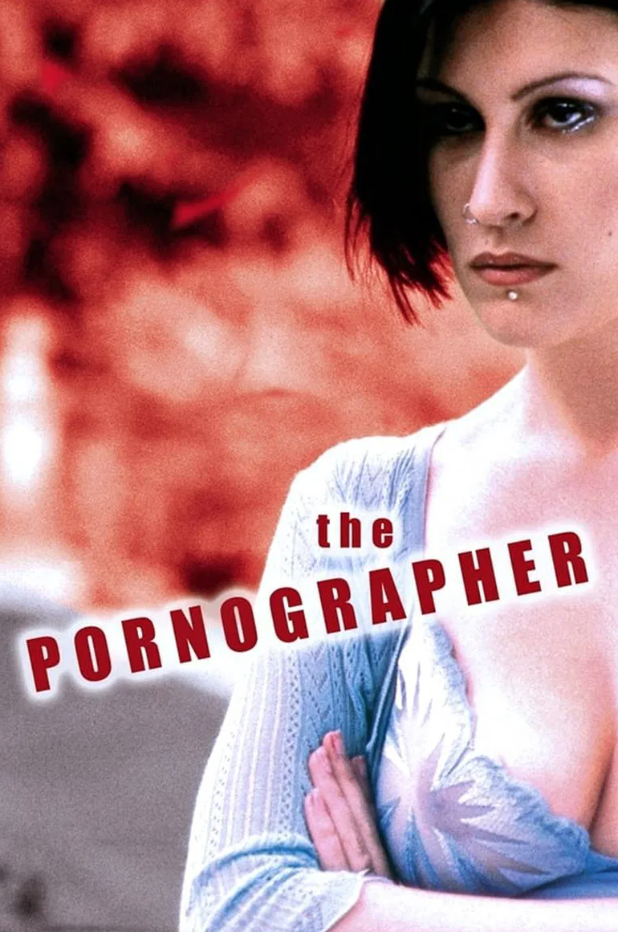
Written and directed by Bertrand Bonello, this moody erotic drama doesn’t shy away from its subject matter. It includes one very real, unsimulated sex scene featuring actual French porn stars Ovidie and Titof. The film premiered in the 2001 Cannes International Critics’ Week (Semaine de la Critique), where it raised eyebrows—and took home the FIPRESCI Prize for its bold storytelling.
The Piano Teacher (LA PIANISTE 2001)
While Michael Haneke isn’t known for unsimulated sex scenes per se, The Piano Teacher certainly pushes boundaries in its own intense, unsettling way. Isabelle Huppert plays Erika, a buttoned-up piano instructor whose repressed desires take her far from the quiet halls of Vienna’s conservatory and deep into the city’s darker corners. In one unforgettable scene, Erika finds herself in a sex shop, tucked inside a private booth, watching porn and sniffing used tissues—a moment that is every bit as graphic (and real) as Haneke’s cold, unflinching camera allows.
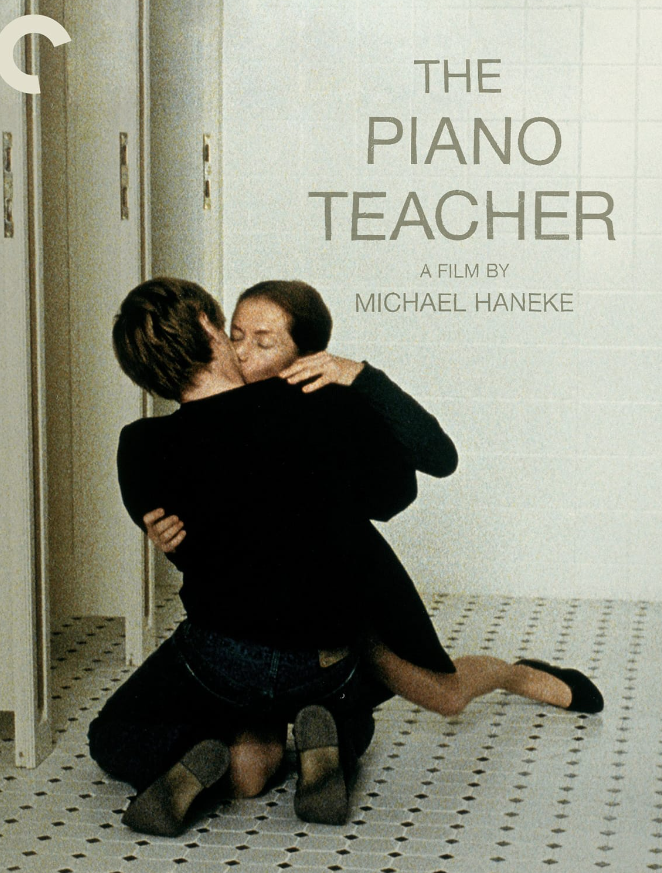
Though the onscreen action Erika watches is indeed unsimulated, Huppert and co-star Benoît Magimel’s own sex scenes are choreographed. Still, they’re acted with such rawness and intensity, you might feel like you’ve seen more than you actually have. The performances were so powerful that both Huppert and Magimel took home Cannes acting awards, and the film snagged the Grand Prix under jury president Liv Ullmann. The Piano Teacher remains one of the most provocative films ever to be so heavily decorated at Cannes, blurring the lines between psychological drama and full-on sexual reckoning.
Pola X (1999)
Leos Carax’s bold and moody take on Herman Melville’s 1852 novel Pierre, or The Ambiguities, caused quite a stir when it hit the 1999 Cannes Film Festival. The film, steeped in the style of the New French Extremity movement, didn’t shy away from pushing boundaries, especially when it came to its sexual content. Guillaume Depardieu (playing Pierre) and Yekaterina Golubeva (as Isabelle) share scenes that include unsimulated sex acts, though body doubles stepped in for the most explicit moments.
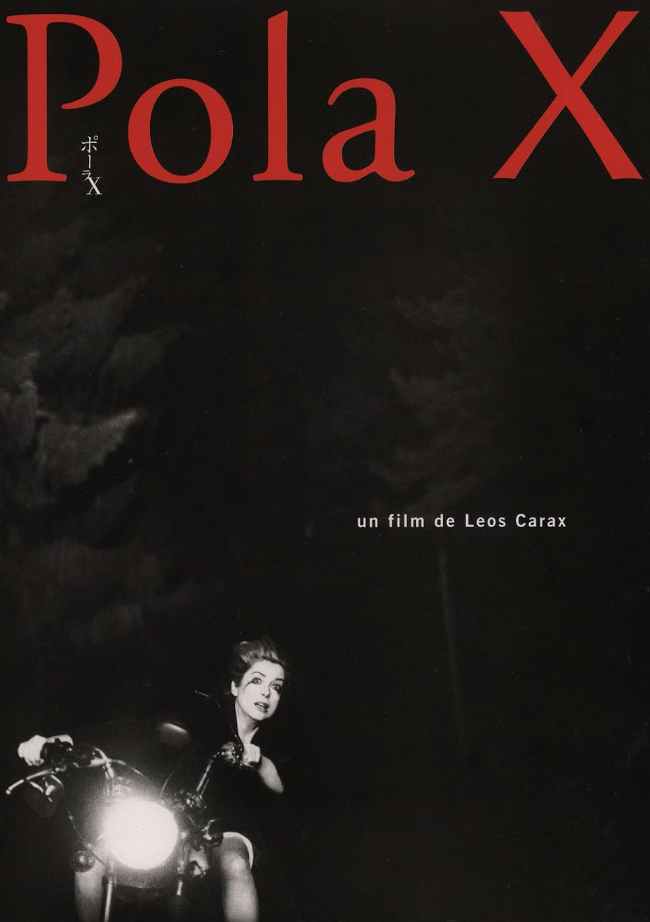
True to its literary roots but drenched in Carax’s trademark intensity, the film earned a reputation for being as transgressive as it was hypnotic. It’s a fitting entry in a wave of French cinema that loved to make audiences squirm, swoon, or both—sometimes in the same scene.
The Idiots (1998)
Lars von Trier, never one to shy away from stirring the pot, wrote and directed this Danish dramedy as part of his strict Dogme 95 Manifesto—an indie filmmaker’s vow of cinematic purity. It’s the second entry in his “Golden Heart Trilogy” and made history as one of the first major films shot entirely on digital cameras.
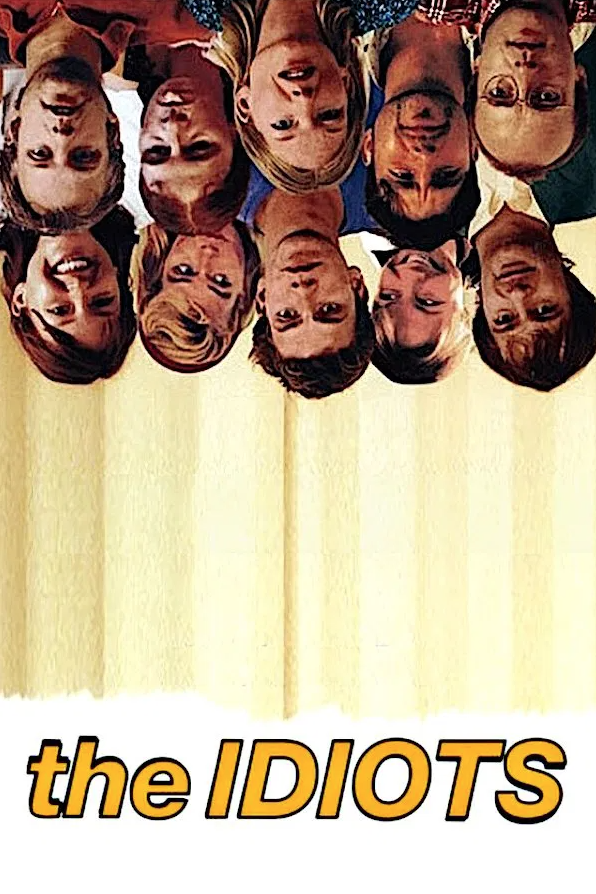
Of course, it wouldn’t be a von Trier film without controversy. The movie features explicit sexual content, including a shower scene where one character is visibly aroused, and a group sex scene with a couple (played by adult film actors) having unsimulated sex on screen. Naturally, it caused quite a stir when it premiered in competition at the 1998 Cannes Film Festival. But in true von Trier fashion, it wasn’t just about shock value—it was also raw, emotional, and unapologetically bold.
Life of Jesus (1997)
Bruno Dumont’s feature debut doesn’t exactly ease viewers in gently. Set in a sleepy French town, the film centers on a group of aimless teenagers led by Freddy, whose rough and joyless relationship with Marie takes a darker turn when a young immigrant, Kader, shows interest in her, and she reciprocates. That doesn’t sit well with Freddy or his crew, and what follows is a bleak and disturbing spiral into violence.
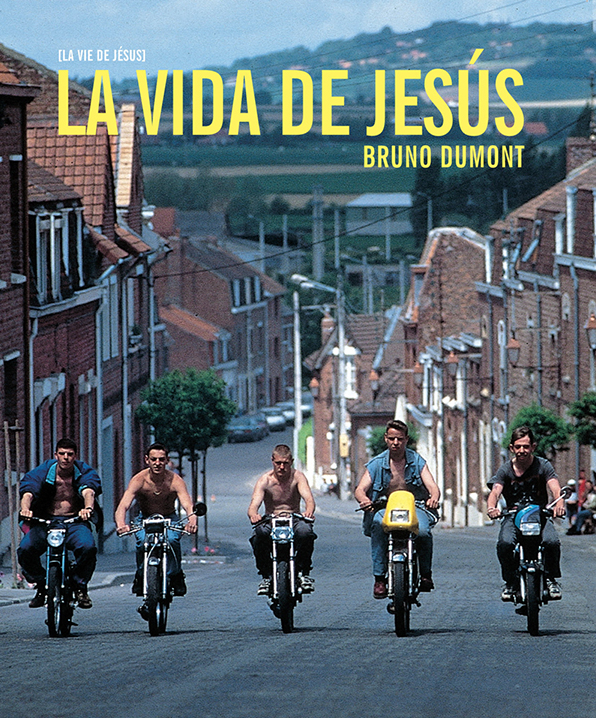
Known for his stark realism, Dumont doesn’t shy away from showing the rawest aspects of human behavior. The film includes a harrowing rape scene and unsimulated sex shot in unforgiving close-up—definitely not for the faint of heart. Gritty and unflinching, it made a strong (and divisive) impression at the 1997 Cannes Film Festival, where Dumont took home the Camera d’Or for best first feature.
Sweet Movie (1975)
Dušan Makavejev’s Sweet Movie is one of those films you don’t just watch—you survive. This wild, avant-garde dramedy from Yugoslavia follows two very different women on equally bizarre journeys: one is a virginal Canadian beauty queen escaping her creepy millionaire husband (who, yes, has a solid gold penis), while the other is a socialist sea captain piloting a ship full of sugar and candy down the Seine with her lover.
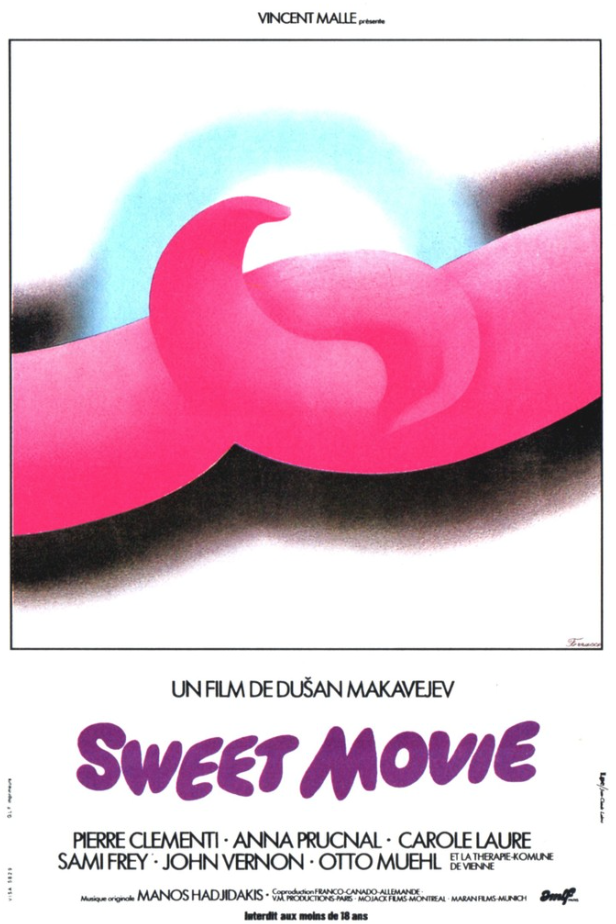
As whimsical as that might sound, the film dives headfirst into the extreme. We’re talking explicit sex, scenes involving bodily fluids, and deeply unsettling imagery that pushed every possible boundary. So much so, the original cut featured coprophilia, emetophilia, and disturbing hints of child abuse. Unsurprisingly, Sweet Movie was banned in multiple countries and heavily censored in others.
It made its infamous premiere at the 1975 Cannes Film Festival, shocking audiences and instantly earning a spot in the cinematic hall of notoriety. This one’s not for the squeamish—but it is unforgettable.
Thriller – a Cruel Picture (1973)
Though often mistakenly hailed as a Cannes premiere, the Swedish exploitation thriller Thriller – A Cruel Picture (also known by pulpy titles like They Call Her One Eye and Hooker’s Revenge) actually debuted at the Cannes Market—not the official festival. That technicality didn’t stop it from gaining a cult following, especially after it was picked up and dubbed for U.S. release by American International Pictures. One of its biggest fans? Quentin Tarantino, who famously drew inspiration from the film for Daryl Hannah’s eye-patched assassin Elle Driver in Kill Bill.

Directed by Bo Arne Vibenius under the alias Alex Fridolinski, the film follows a mute woman (played by Christina Lindberg) on a bloody path of vengeance against the men who addicted her to heroin and forced her into sex work. It’s a brutal, no-holds-barred tale that blends grindhouse gore with hardcore pornography—so graphic, in fact, that it was originally banned by Sweden’s censorship board.
Over time, Thriller clawed its way from the exploitation gutter to auteur cult status, all without ever officially gracing the red carpet at Cannes.
